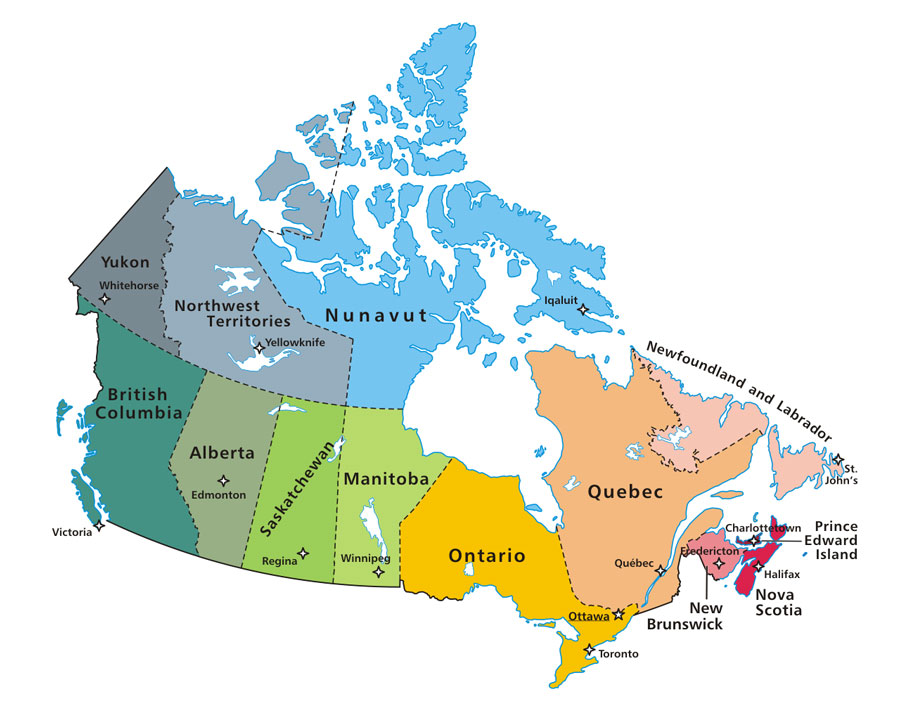
Five Quick Points About Canada
- Huge area, relatively small population, beautiful natural environment
- One of world’s wealthiest nations
- Multicultural society with many immigrants
- Well-respected and sophisticated education system, and one of the top destinations for international study
- Safe and interesting place to study – students should begin planning early since admissions can be competitive
Location and Geography

Covering most of the northern part of the North American continent, Canada is the second-largest country in the world (after Russia), with a total land area of 9.9 million square kilometres. It stretches from the Pacific Ocean on the west, and to the Atlantic Ocean on the east. Northern Canada reaches into the Arctic Circle, while southern Canada stretches below the northern points of the United States (with which it shares the longest border in the world). The capital city is Ottawa (in the province of Ontario).
Because it’s so big, Canada’s climate varies considerably across its regions. But generally the country is known for its cold and sometimes long winters, beautiful and mild “shoulder seasons” (fall and spring), and hot but often short summers.
Economy of Canada
One of the world’s wealthiest countries, Canada is a major industrialised trading nation. It is a member of the G7/8, the G20, the Organisation for Economic Co-operation and Development, and many other international bodies. It boasts a highly educated workforce and an increasingly diversified economy, but it is unusual among developed nations in the continuing importance of its natural resources sector (e.g., logging and oil).
The Canadian economy is market-oriented like that of the U.S., yet government tends to provide more support and intervention than does the U.S. government. International trade is an important part of the Canadian economy, especially with the U.S. The currency is the Canadian Dollar.
Living Conditions and Cost of Living
Many people find the cost of living in Canada is significantly lower than their home country, but of course this is not the case for all students. According to Statistics Canada, the average tuition fees for undergraduate international students in 2019/20 were CA$29,714. Other areas of higher education study may carry higher or lower fees, as would college-level or language programmes. Monthly living costs will also vary quite a bit in different cities or towns across the country, with the largest cities such as Vancouver, Montreal, and Toronto being among the most expensive.
Education System
Canada claims one of the highest rates of post-secondary education completion in the world. More than half (53%) of Canadians between 25 and 64 years of age have completed some form of post-secondary education; the OECD average, by comparison, is 32%. Post-secondary institutions are located throughout the country; there are just under 100 universities and 127 colleges in Canada.
In Canada, the provinces and territories are responsible for all levels of education including colleges and universities.
In addition to post-secondary options, Canada offers a wide range of independent private boarding schools for younger students noted for their excellence in preparing young people for university and college placement.
Information Specific to International Students
In 2021, there were roughly 630,000 international students Canada, with 75% of these enrolled in post-secondary institutions. International students applying directly from high school to a university or college in Canada should begin planning early, since universities in Canada or particular programmes within a university can be competitive.
Due to the different laws and regulations in each province the correct visa information can be obtained by visiting the Canadian government website devoted to studying in Canada.
